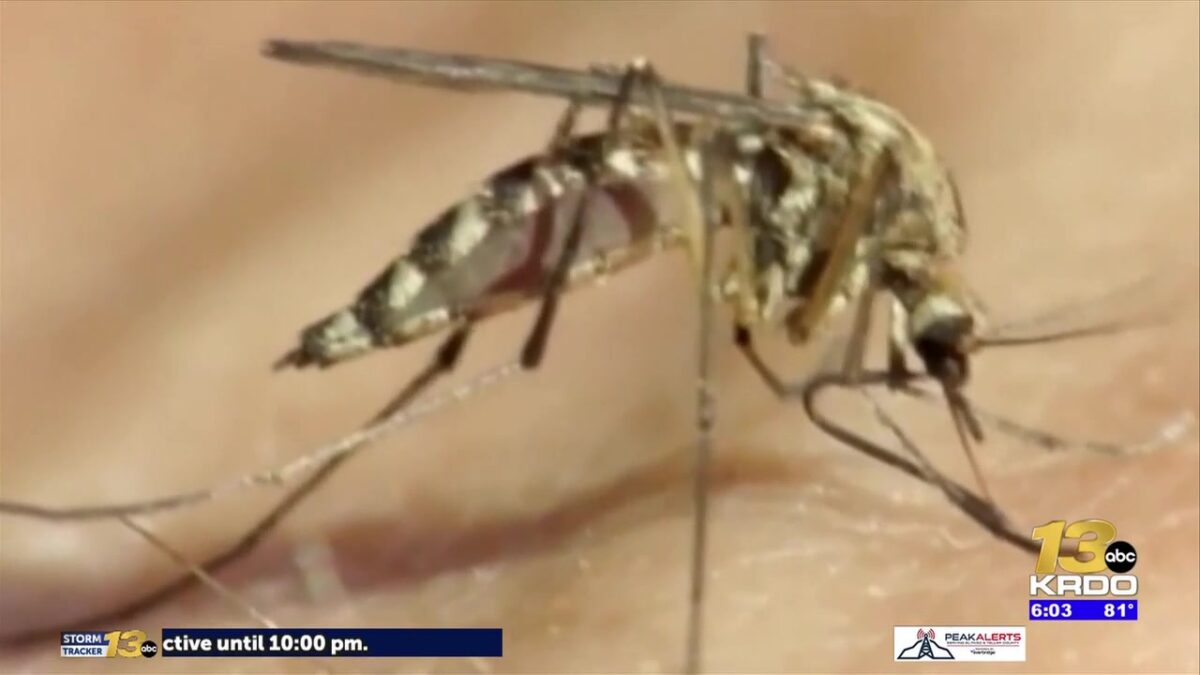Two West Nile virus-related deaths confirmed in Fremont County

Celeste Springer
FREMONT COUNTY, Colo. (KRDO) — The Fremont County Department of Public Health and Environment says that two people have died as a result of the West Nile virus.
“We are deeply saddened by the two recent West Nile virus–related deaths in our community. This is a reminder of the seriousness of the disease, and I urge everyone to take precautions to protect themselves and their loved ones,” said Paula Buser, public health director.
West Nile virus is typically spread through infected mosquito bites, according to health officials. The Centers for Disease Control (CDC) says that it is the leading cause of mosquito-borne disease in the continental United States.
The CDC says that the majority of people infected with the virus don’t feel sick. About 1 in 5 people who are infected develop a fever and other symptoms, and about 1 out of 150 infected people develop a serious, sometimes fatal illness, the CDC says.
“West Nile virus can affect any age group, but people aged 60 years and older and those with certain medical conditions are at greater risk of serious illness,” read a release from the Fremont County Department of Public Health and Environment.
The roughly 1 of 150 people who do develop serious symptoms may experience the following, according to the CDC:
High fever
Headache
Neck stiffness
Stupor
Disorientation
Coma
Tremors
Convulsions
Muscle weakness
Vision loss
Numbness
Paralysis
Recovery from severe illness can take anywhere from several weeks to several months, the CDC says.
The Fremont County Department of Public Health and Environment says that the majority of West Nile virus cases in Colorado occur during the months of August and September. The most effective way to prevent West Nile virus is to avoid mosquito bites.
Here’s how you can protect yourself, according to officials:
• Use effective insect repellant with DEET, picaridin, IR3535, oil of lemon eucalyptus, or para-menthane-diol when you go outside.
• Limit outdoor activities at dusk and dawn when mosquitoes that spread the virus are most active.
• Wear protective clothing (long pants, long-sleeved shirts, and socks).
• Drain standing water around your house weekly. Treat water that can’t be drained with Bti larvicide.
• Install and repair screens on doors and windows.
For more information on West Nile virus, visit https://cdphe.colorado.gov/…/west…/west-nile-virus-data